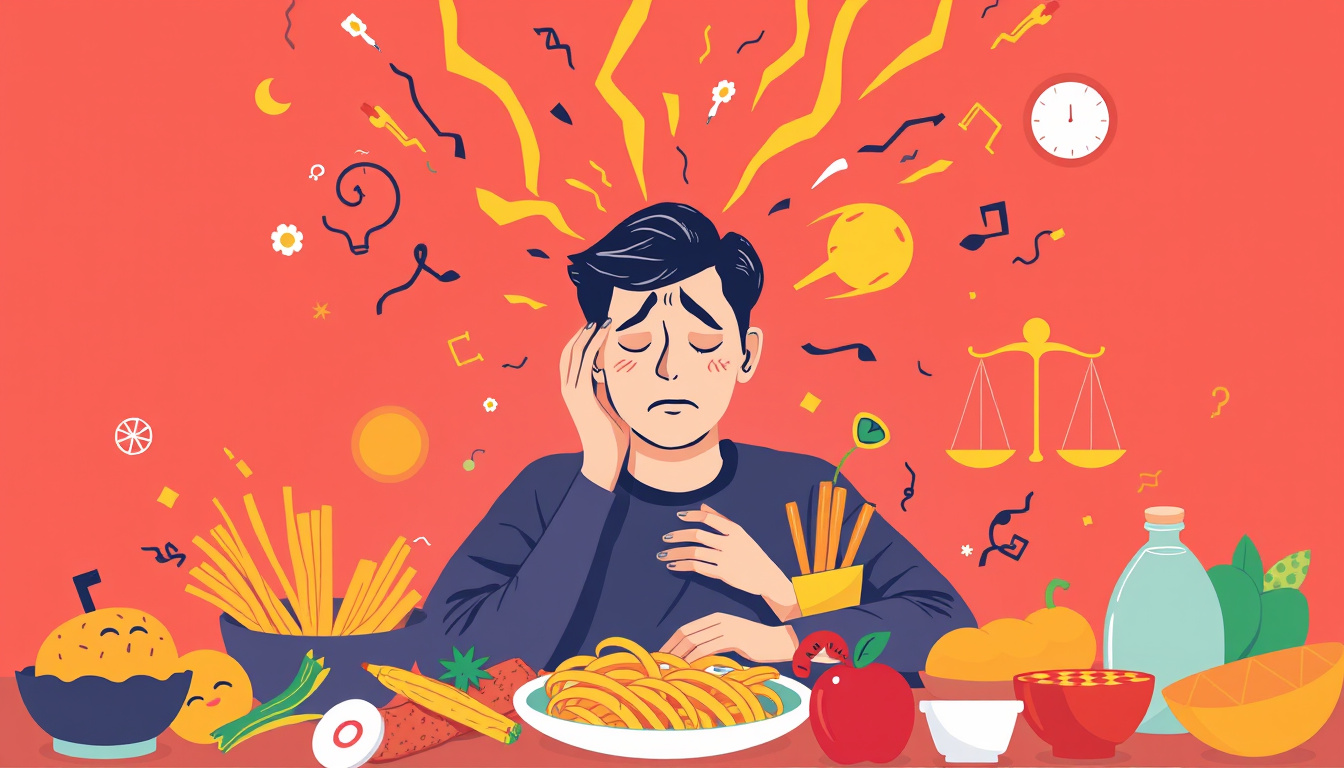The Hidden Link Between Stress and Weight Gain: Understanding the Science Behind Stress Eating
 Jill Smith
Jill Smith
In today’s fast-paced world, stress is an all too familiar companion. While the occasional stressor might be manageable, chronic stress can have significant repercussions on both mental and physical health, including weight gain. In particular, the hormone cortisol, often dubbed the "stress hormone," plays a crucial role in this process. Understanding the intricate link between stress and weight gain can empower individuals to take charge of their health and well-being.
The Cortisol Connection
Cortisol is produced by our adrenal glands in response to stress and is vital in managing various bodily functions, including metabolism. However, when cortisol levels remain elevated for prolonged periods—often due to chronic stress—our bodies may trigger fat storage, particularly around the abdominal area. This biological response is a remnant of our ancestral past, where the fight-or-flight mechanism was essential for survival.
For those who are already actively working on their health, such as managing diabetes or striving for enhanced metabolic health, high cortisol can feel particularly frustrating. It’s essential to recognize that controlling stress isn't just about reducing food intake or ramping up physical activity; it requires an integrated approach focused on stress management and dietary balance.
Warning Signs of High Cortisol
Awareness of the warning signs of high cortisol can be pivotal in combating its detrimental effects. Here are four major indicators to watch for:
-
Abdominal Weight Gain: If you notice an increase in waist circumference despite maintaining a healthy diet and exercise regimen, high cortisol could be to blame. This accumulation of fat around the belly signifies that your body may be in a perpetual state of fight or flight. To counter this, integrating relaxation techniques like mindfulness, yoga, or even daily walks can help reduce cortisol levels. Additionally, focus on consuming balanced meals rich in protein, healthy fats, and fiber to support blood sugar stability.
-
Sleeplessness and Exhaustion: High cortisol levels can disrupt your sleep cycle, leading to ruminating thoughts that keep you awake. Poor sleep not only exacerbates stress but also worsens insulin resistance, complicating weight management. Creating a calming bedtime routine can help alleviate this issue. Strategies such as dimming lights, limiting screen time, and incorporating relaxation aids like magnesium or herbal teas can foster better sleep.
-
Post-Meal Bloating: Chronic stress can slow down digestion and reduce stomach acid production, leading to discomfort and bloating. Eating in a calming environment and taking the time to chew food thoroughly can improve digestive health. Consider adding digestion-friendly ingredients like ginger or fermented foods to your meals, as they can facilitate better digestion.
-
Cravings for Sugary Treats: An increase in cravings for sugary snacks, especially after meals, can signal high cortisol levels. Elevated cortisol can cause fluctuations in blood sugar, leading you to seek quick energy fixes like candies or pastries. To stabilize blood sugar and reduce these cravings, focus on meals that include a balance of protein, fiber, and healthy fats. Opt for nutrient-dense snacks such as Greek yogurt with chia seeds or a mix of almonds and berries.
Taking Action Against Stress Eating
Addressing stress and its effects on weight demands a comprehensive approach. It's not solely about modifying dietary habits or increasing exercise; it's about nurturing mental health and reducing stressors in daily life.
Incorporating mindfulness practices, ensuring adequate sleep, and being conscious of what you eat can create a holistic routine that promotes a healthy metabolism. Remember, managing stress effectively is not just about feeling better in the moment; it plays a crucial role in safeguarding long-term health and well-being.
Ultimately, understanding the science behind stress eating provides invaluable insights into how to reclaim control over our bodies and foster a healthier relationship with food. By recognizing the signs of high cortisol and implementing proactive measures to manage stress, we can mitigate its impact on weight gain and create a more balanced, healthier lifestyle.
Turn Back the Clock: Unlock the Secrets to Reverse Diabetes in 30 Days. Don't Wait! Download Now
Subscribe to my newsletter
Read articles from Jill Smith directly inside your inbox. Subscribe to the newsletter, and don't miss out.
Written by
